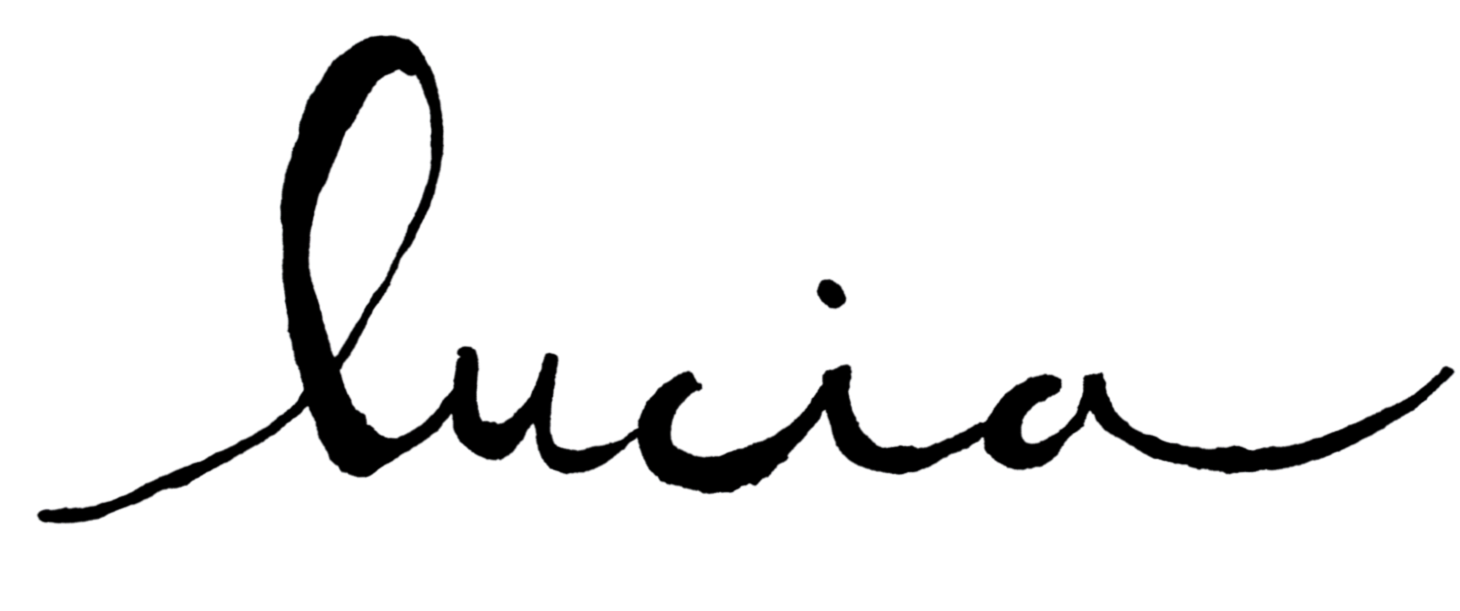1,286 words
Words and photographs by Gráinne Conroy
A few days after Christmas I’m eating veggie curry watching the sea through the window. There’s a lighthouse on a little island that appears and disappears through the clouds. Sometimes there are figures walking on the headland near the tower.
I’m here as a kind of halfway house—after spending Christmas with my family in the suburbs and before going back to my tiny studio in the city centre.
The arrangements were last-minute. Plans to visit friends recently moved to the country dissipated as another lockdown approached.
“Lying in bed in the darkness I scrolled through my phone for some kind of getaway within the county limits. ”
I saw the beach house, and after much scrolling it kept coming back. My mail to the owners bounced, but with a bit more Googling I found their phone number. I texted to check availability and the best rate they could do for single occupancy.
I liked the tone of Mary’s text straight away, she’d drop the price if I paid in cash. I’d have rented it at any rate.
I arrive the next day at the small town at the northern limits of the county, where the Dublin city bus rolls through at irregular intervals. Dotted on the main street and in the area around are houses with yellow, straw-thatched roofs. On from the town is the beach overlooking Lambay Island.
Along the beach I press the code from Mary’s text into the keypad by the gate. The gate springs open revealing a compound by the sea. The five holiday rentals run in a strip attached to the family home. The entire building is painted a minty green and decorated for the season with a string of clear fairy lights along the roof.
In front of the main building is another, abandoned and half-built, looking a little forlorn in the off-season light but nodding towards future expansion plans with a low-key confidence.
On a grassy mound in front of the sea are a row of deck chairs hand painted in vibrant hues—shocking pink, medium purple and turquoise in the direction of blue. They stand out against the greyness of the Irish winter weather with an optimism that’s almost gaudy. I like looking at them though, and later in the week I’ll take many pictures of that scene.
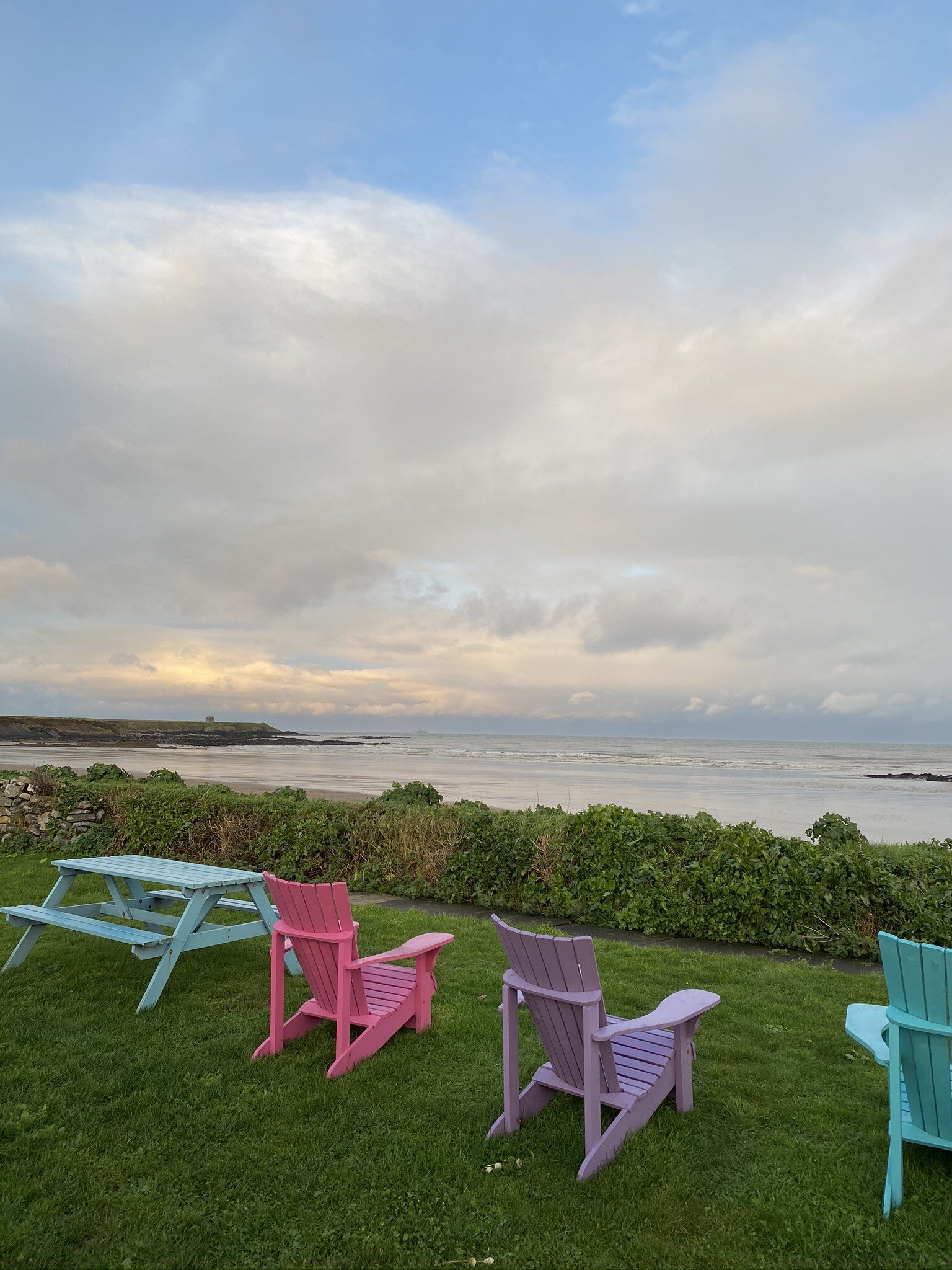
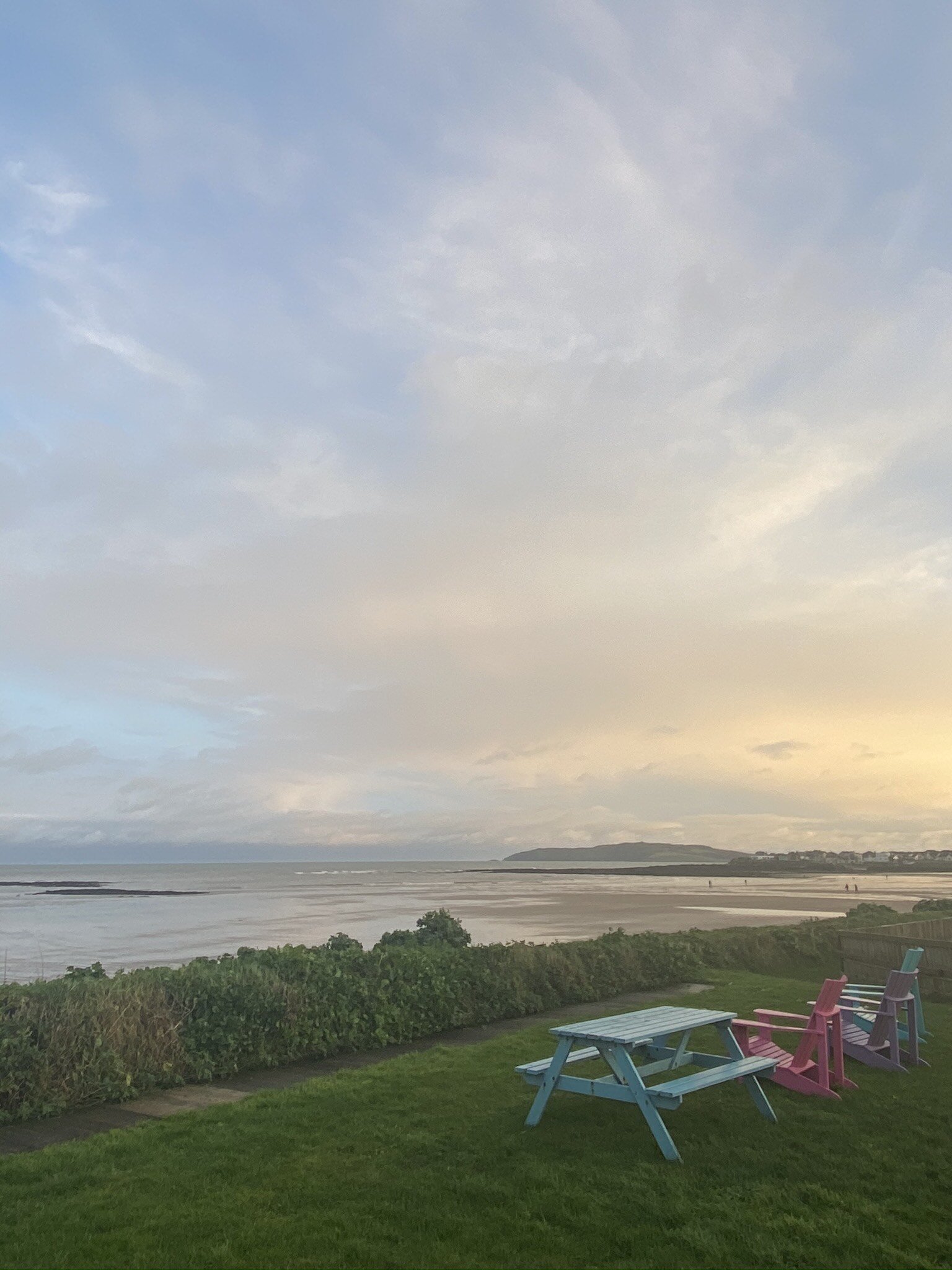
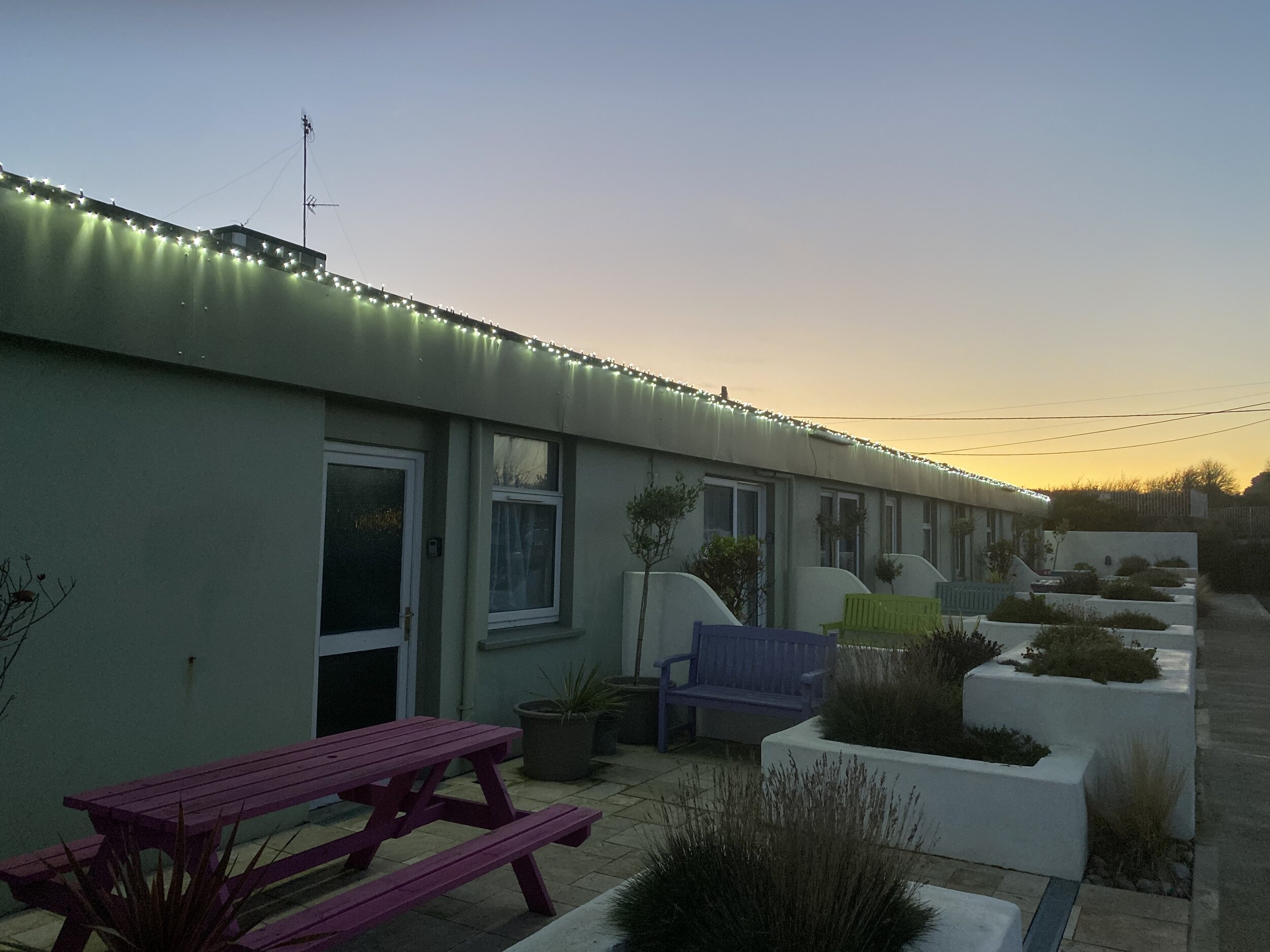
My rental is right on the corner with all its windows facing directly towards the sea. It’s decorated with the same kind of hope for a better climate—the cooling tiles now cold on this day in late December.
Mary meets me at the door, mentions the “patchy” internet connection and shows me how to take the child safety lock off the hob. Mary has three children and I notice that all of the sharp corners on the furniture have been softened into curves.
The internet’s more non-existent than patchy. I’d already read that in the online reviews though, and I can pick up enough signal on my phone for the essentials. After a few days I feel the luxurious mental relief of the shockingly bad internet connection and think Mary could market the place on that alone.
As soon as Mary leaves I’m unloading a bag of groceries and unlocking the hob. Soon the curry’s simmering in a huge pot. In the oven other vegetables are roasting for a soup. When the curry’s ready I eat it in a deep bowl sitting on the sofa watching the sea through the window. A couple of fishing boats pass near the lighthouse, they’re brightly coloured—the kind you’d see on a TV commercial for frozen fish.
“I light a candle a friend gave me before Christmas.”
The same friend texts to ask what I’m doing for a week at the beach off season. But I’m here to do nothing. My whole self is tired. Tired of the pandemic. Tired of the festivities. Tired of the internet. Tired of the relentlessness of modern living, the constant pings and updates. Tired of all expectations—both mine and not mine.
Hours pass as I sit there watching the scene through the window—the light and the tides changing; the tower and the headland in the distance; the lighthouse being hidden and revealed by the passing clouds; the odd boat at sea.
I need to send one email but it takes me days—because of the patchy internet, but mostly because of my submergence into an existence far from the city and far from everything.
Every day I get up planning to walk along that headland in the distance. But darkness falls early and instead every day I walk to the other end of the beach and up to the supermarket in the village. There are inlets of water, like little streams in the sand. They seem passable but they’re deep enough that every time I cross them my shoes soak through.
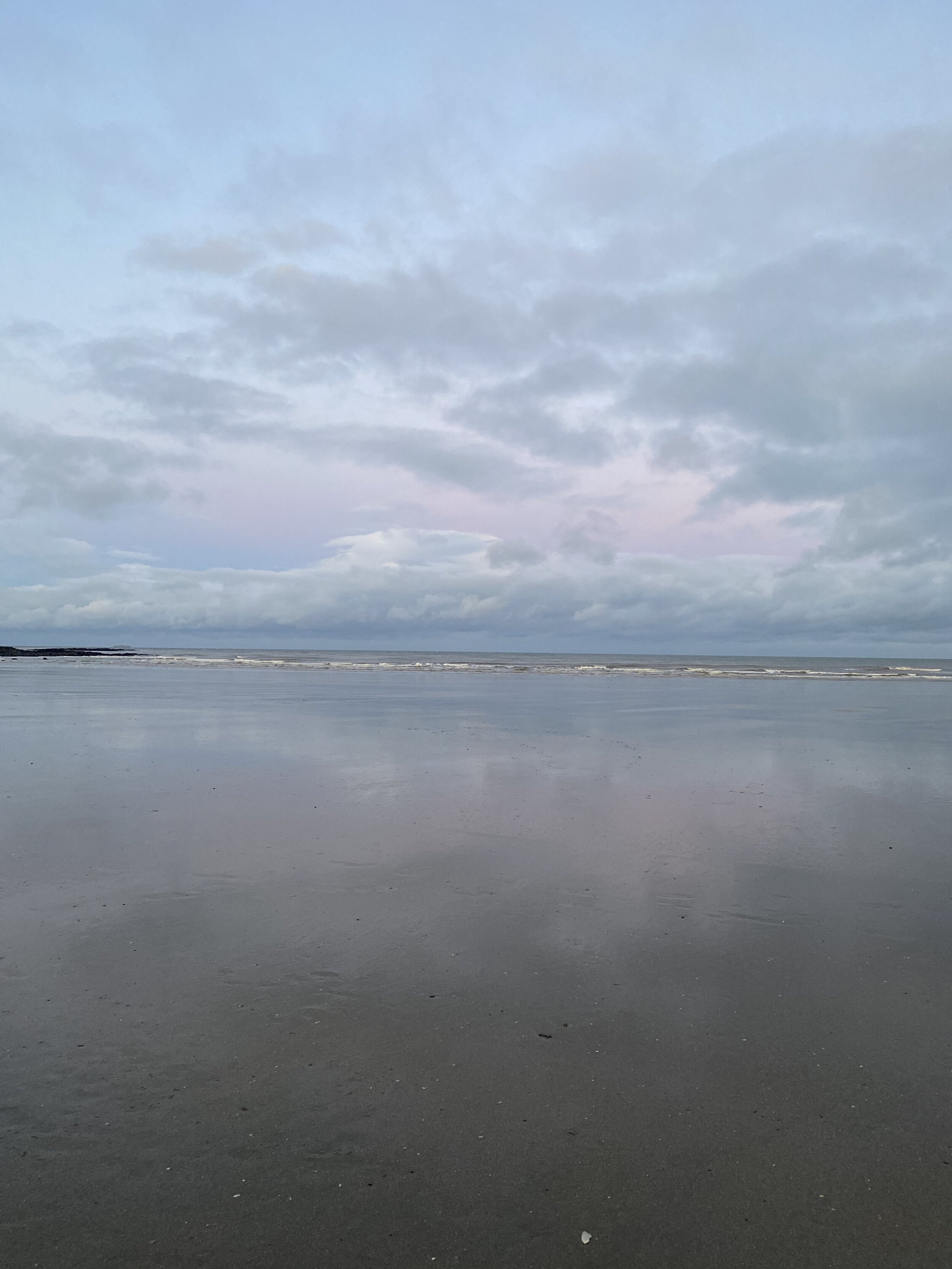
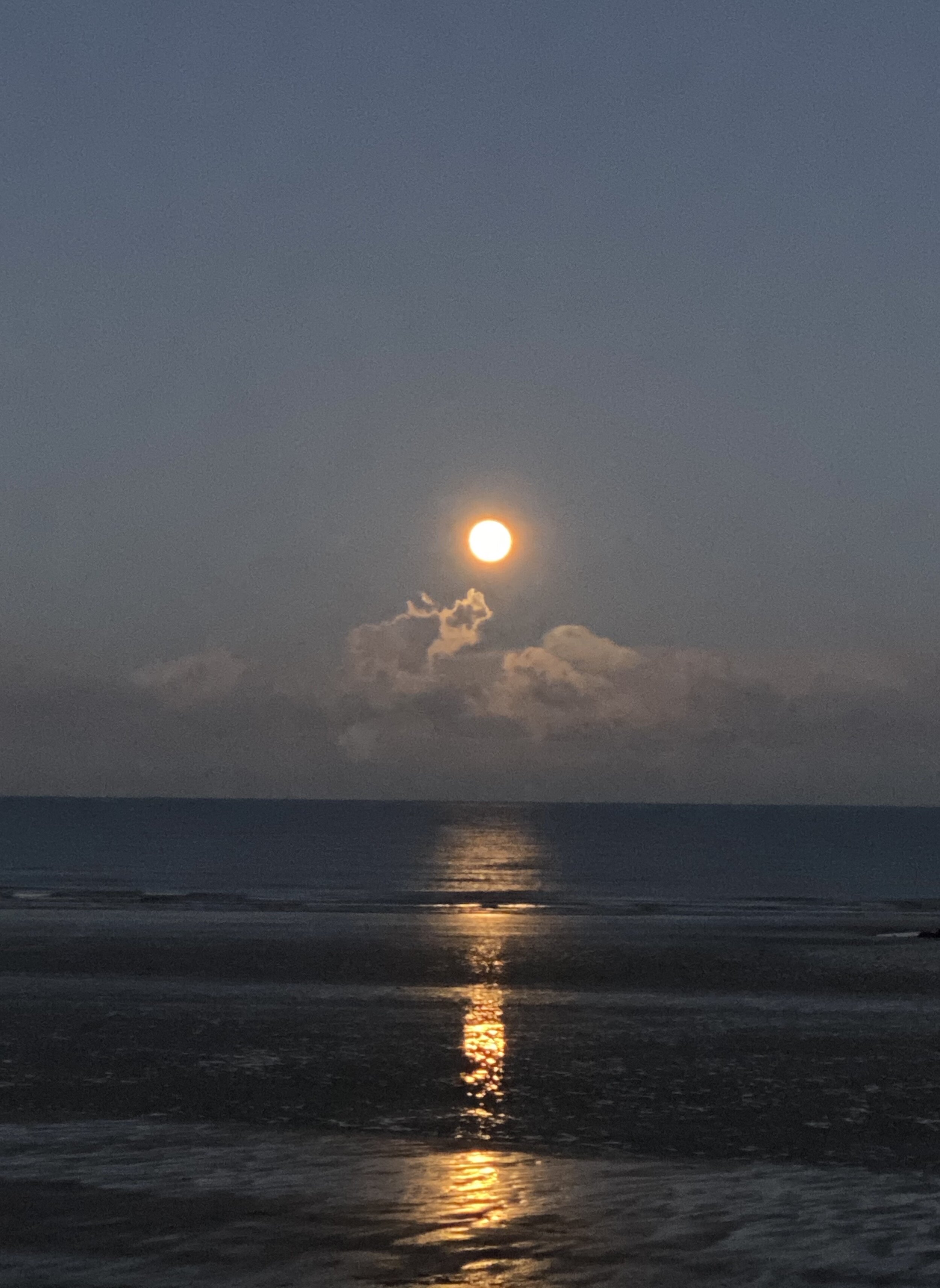
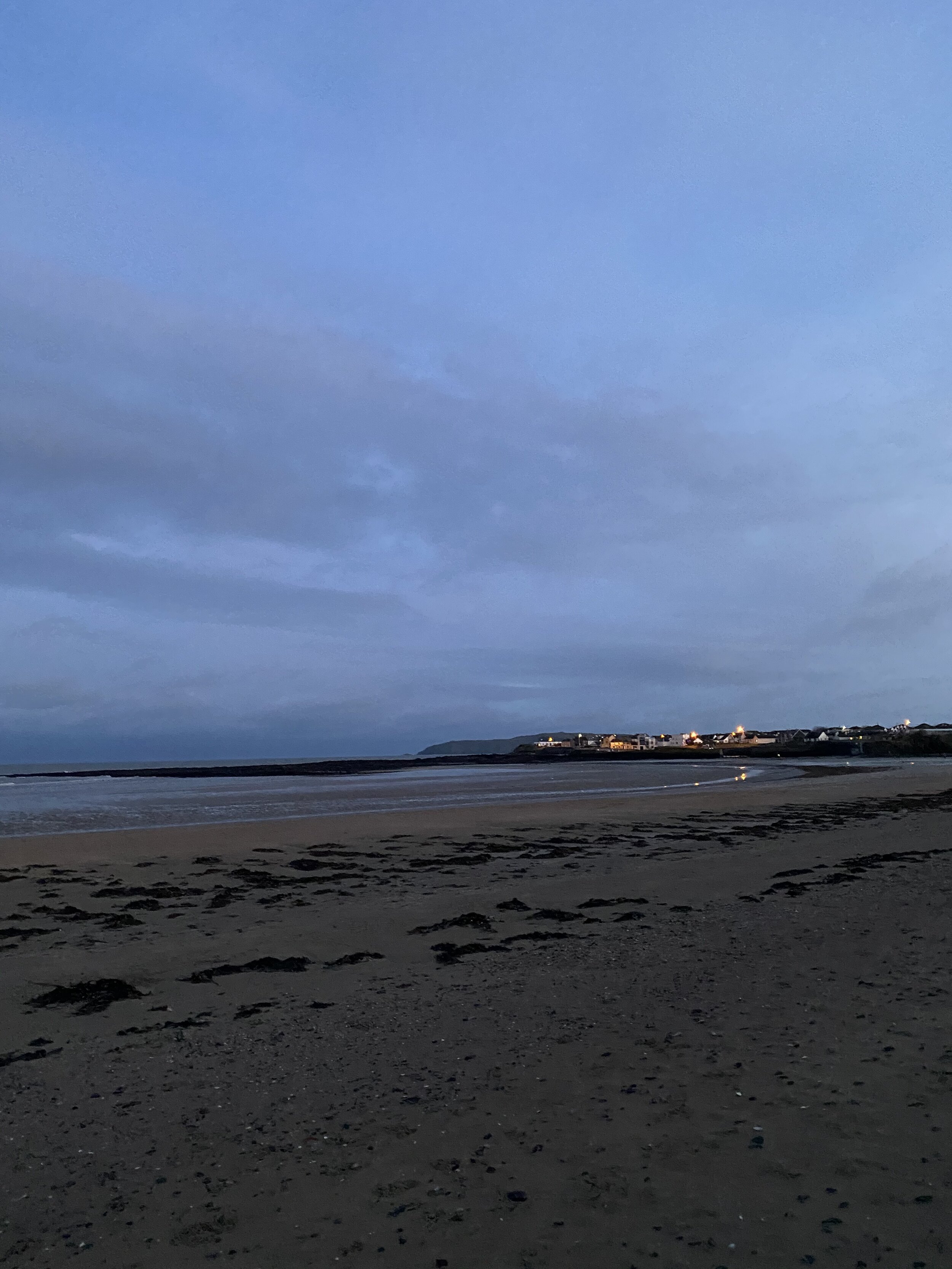
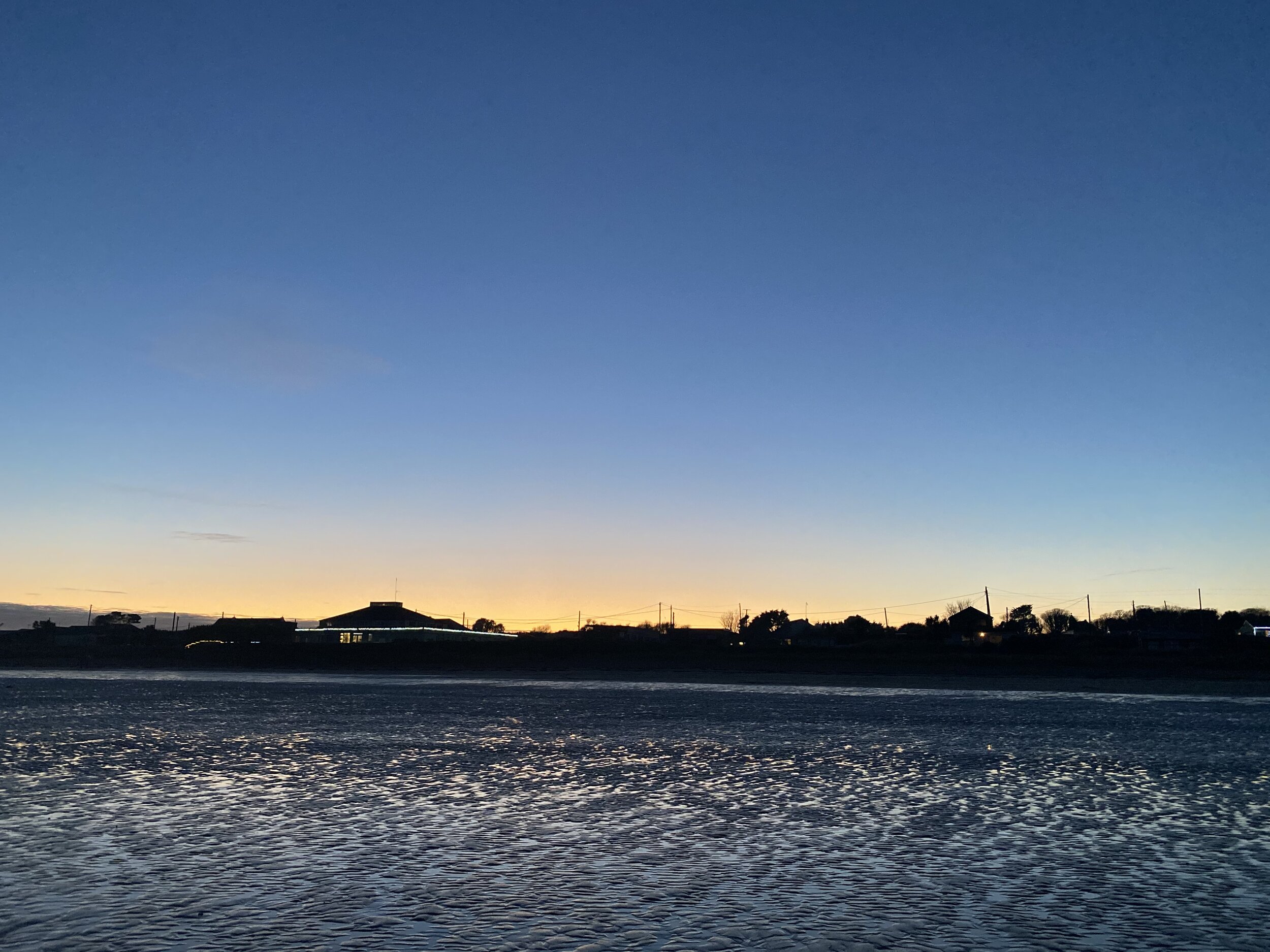
Towards the middle of the week the moon is full. As I walk along the beach in late evening the clouds part dramatically and the full moon glows. On this beach the moon seems closer than usual. I lift my phone towards the sky and take some pictures but none of them look like what I see in front of me.
Later, with the groceries, I retrace my steps back along the sand. It’s darker now, the moon’s slightly higher. It shines a tube of light forward on the sand like a spotlight. A family walks along the shore, passing through the light– their smallest girl lingers behind. Eventually she passes through the strip of light too. I reach the gate and climb the gentle slope back to my rental.
From the bedroom window I watch the moon’s progress as it rises. At first it hovers close to the horizon. Next it’s at eye-level. Before I go to sleep it’s small and high in the sky. I realise that’s the elevation I’m used to seeing from the city. I wonder how Mary gets anything done with so much to see here from the windows.
“At the end of the week it’s the New Year. I buy pizza and prosecco in the supermarket. I get into bed an hour before midnight. ”
I’m still awake when the fireworks start. I get out of bed and hussle to the window but I can’t see them—my eyesight’s bad without my contacts. I get back into bed and they start again. I stay in bed—I’ve seen fireworks before. I fall asleep to the mini explosions across the bay.
The next morning I’m sitting on a rock on the beach in front of the house. I’m not meditating per se but I am. If I could I’d bottle the roll of the waves, the sun on my face and the chill of winter. I sit there and know that I’ll call this scene up in the future, back in my flat in the city.
I have the distinct feeling that this is my last trip like this—that I won’t be alone next year. Risking becoming every cliché, I feel like I’m now looking for love. It feels like the kind of thing you should never say out loud but I don’t mind saying it. It feels true.
Eventually I climb the gentle slope back to my rental; I put the used linen in the washer; leave the key in the door; heave my luggage up to the main road and text Mary from the bus stop. The bus rolls up two minutes after the app’s prediction.
It’s New Year’s Day and I’m ready to go back to the city.
Gráinne Conroy is a writer who lives in Dublin, Ireland. Find her on Instagram @grainne.n.conroy.
